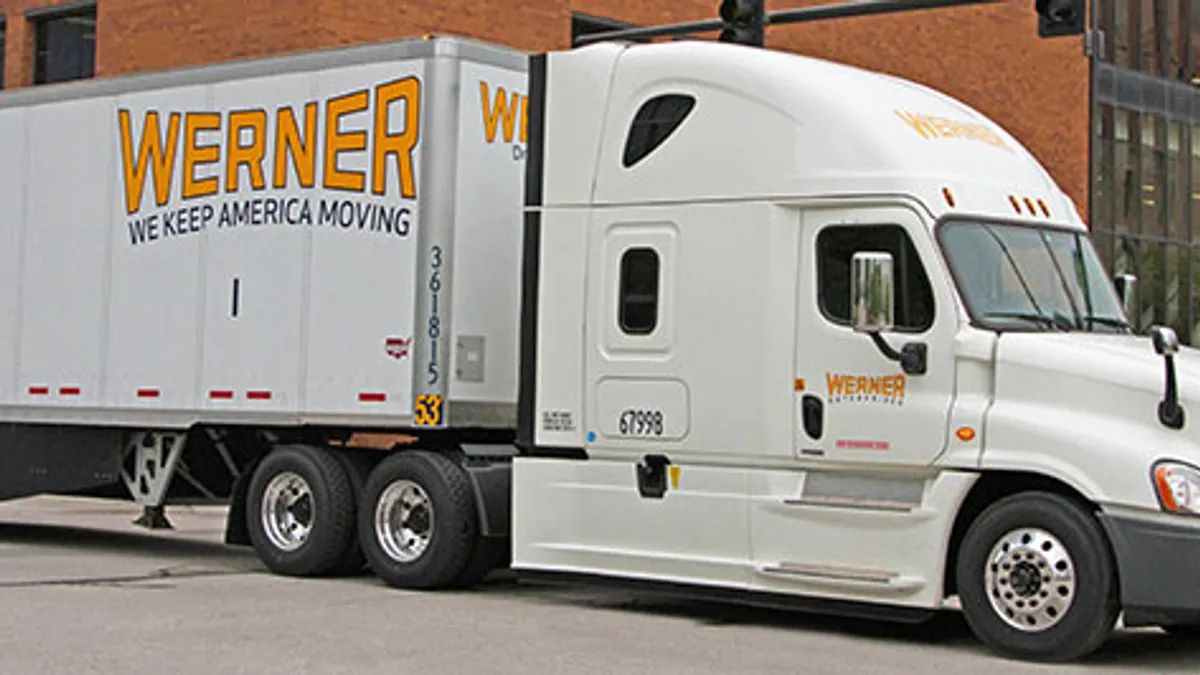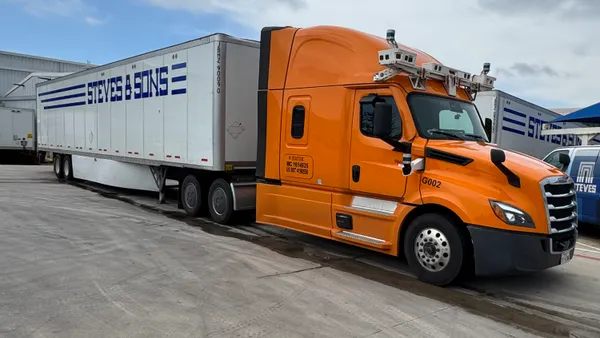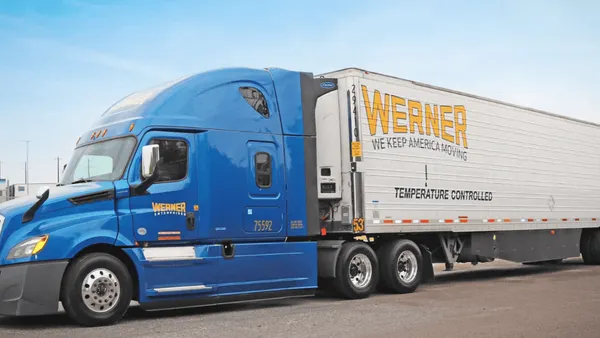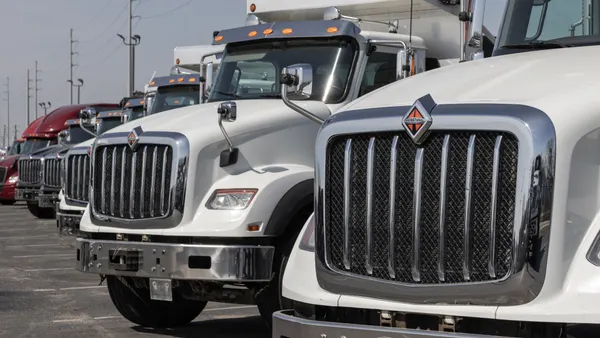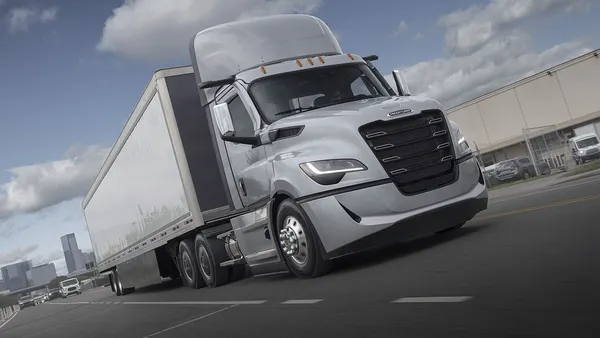Dive Brief:
- After not receiving its full allotment of equipment in Q1, Werner has intentionally reduced the number of trucks and trailers it sells in order to meet its customers' freight commitments, CEO Derek Leathers said on the company's May 3 earnings call.
- Industry-wide equipment procurement challenges led the provider of dedicated and one-way truckload services to cut back on sales, Leathers said. It also caused the age of Werner's tractor fleet to increase slightly YoY, from 2 years to 2.3 years.
- "We are having frequent discussions with the OEMs to plan and coordinate our new truck deliveries based on the very difficult challenges they are dealing with for semiconductor chips, component parts, labor and other issues," Leathers said.
Dive Insight:
The pipeline for carriers receiving new Class 8 trucks has clogged up as OEMs keep their 2023 order boards closed. This has resulted in tepid order activity — preliminary North American Class 8 net orders fell in April to 15,400 units, down 56% YoY, according to FTR.
OEMs are taking a conservative approach to orders after "overbooking and underbuilding that plagued the industry in 2021," Eric Crawford, ACT’s vice president and senior analyst, said in a statement. PACCAR, for example, is limiting truck orders amid concerns over parts availability and cost. OEM caution could persist with ongoing semiconductor supply constraints.
“Recent commentary from the semiconductor industry is discouraging, with ASML, a key supplier of semiconductor production equipment, pointing to a ‘significant shortage of semiconductor manufacturing capacity this year and next,’ suggesting headwinds to OEM production capacity and by extension, lower-for-longer orders potentially into 2023," Crawford said.
These hurdles will test Werner's efforts to keep its equipment age down, a key focus area for the company. It says its average tractor age is well below the industry average of 5.6 years, per ACT Research data cited by the company in an investor presentation.
Werner expects the average age of its tractor and trailer fleet to stay near current levels — "subject to potential delays in receiving new equipment," according to its quarterly report. Truck production delays are limiting industry capacity "in a very competitive driver market," Leathers said.
A newer fleet improves driver satisfaction and retention, in addition to easing maintenance expenses, CFO John Steele said on the call. Maintenance costs increased 24% YoY, while higher driver turnover contributed to a 5% decline in miles per truck in Werner's Truckload Transportation Services segment.
Once truck production picks up, Werner will be able to bring its average fleet age down to two years, helping operations run more smoothly, Steele said.
Werner also pared down its net capital expenditures guidance for 2022 by $25 million, noting in an earnings release that the investments would depend on the timing of deliveries of new trucks and trailers.



